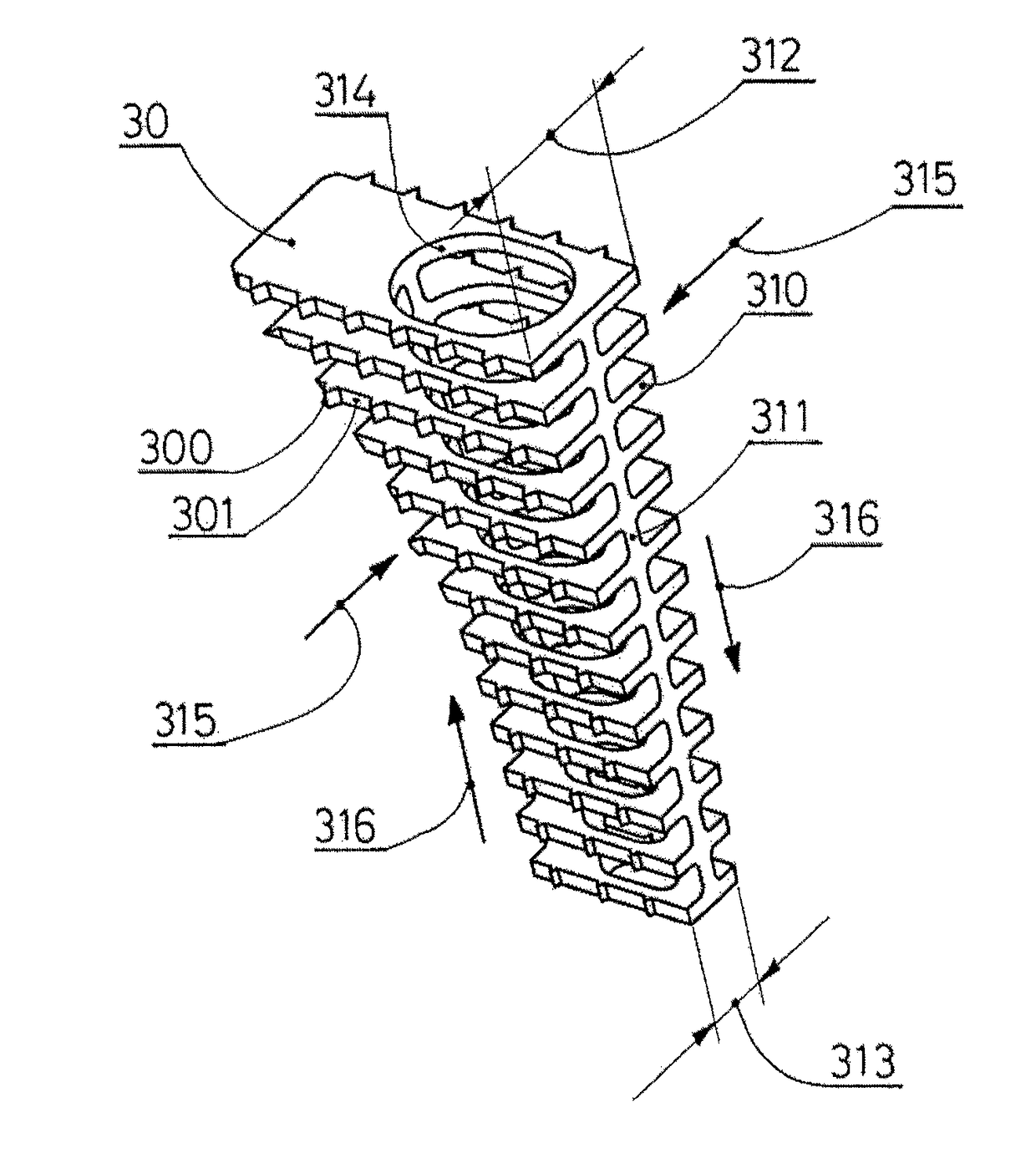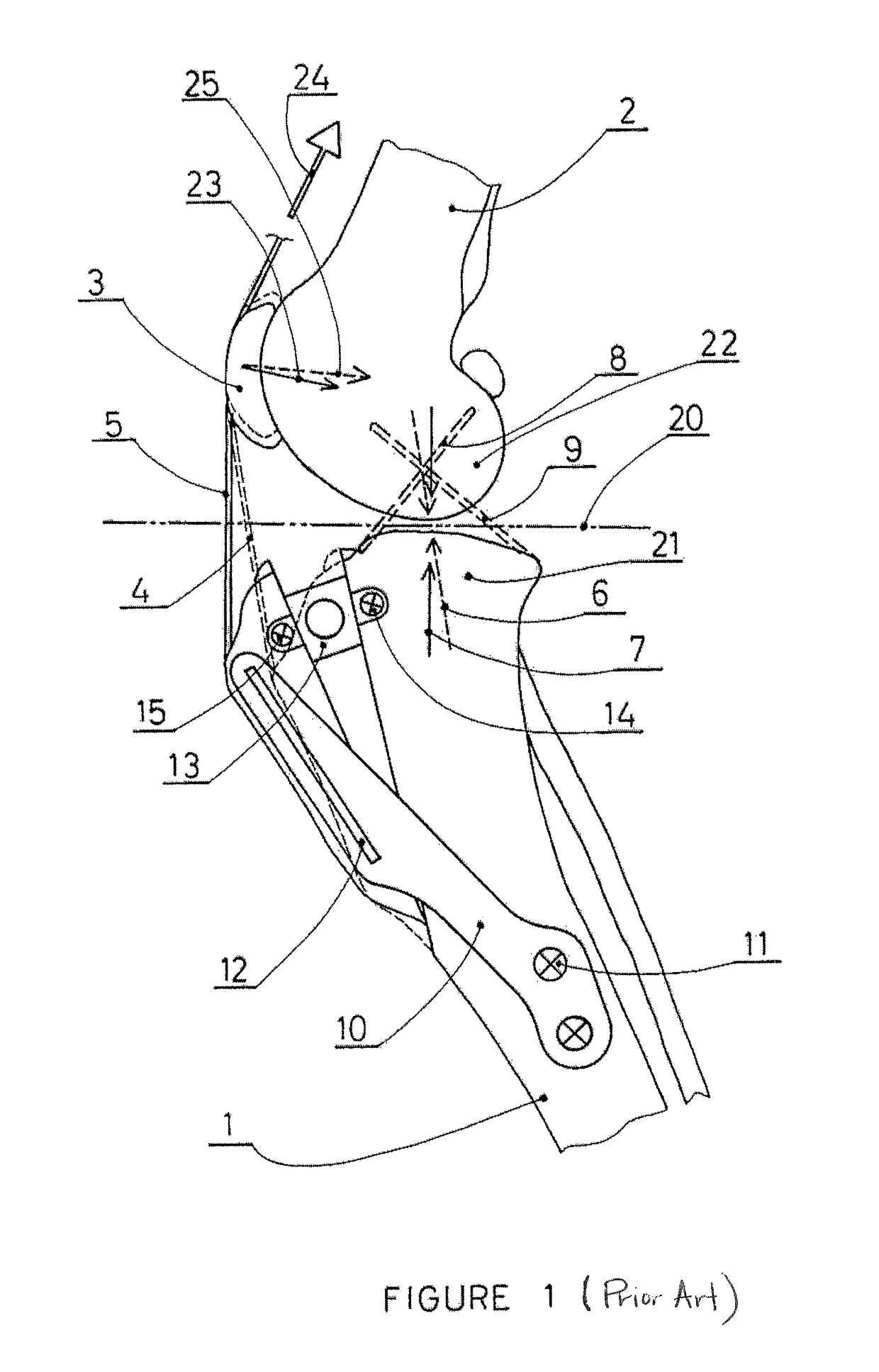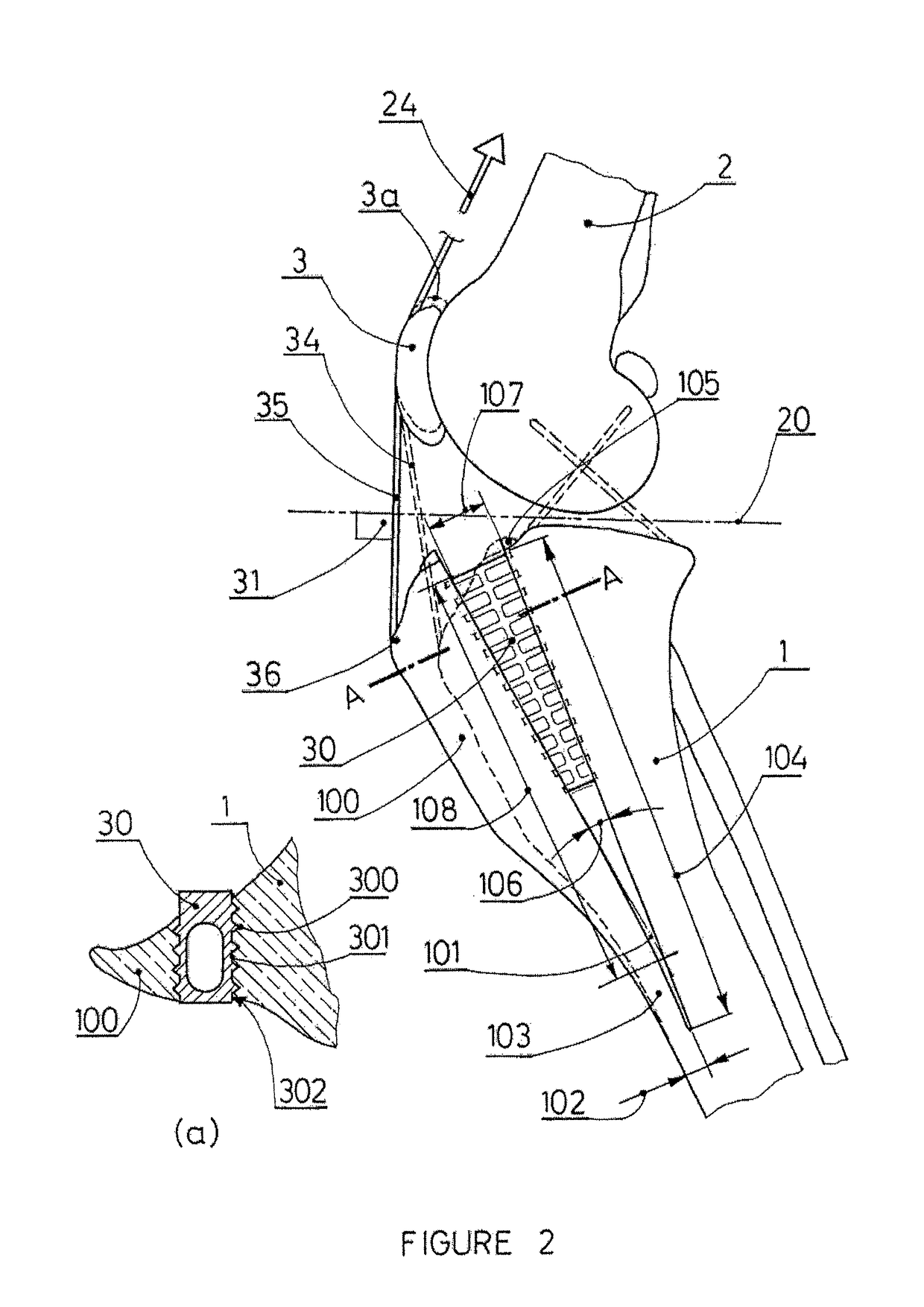Tibial tuberosity advancement cage for ACL injuries
a cage and acl technology, applied in the field of knee implants, can solve the problems of arthrosis of the joint, frequent failure, and unsatisfactory long-term performance, and achieve the effect of less invasive stabilization of the knee joint, simple surgery and stable knee join
- Summary
- Abstract
- Description
- Claims
- Application Information
AI Technical Summary
Benefits of technology
Problems solved by technology
Method used
Image
Examples
Embodiment Construction
[0018]The present invention provides a cage and a procedure for adjusting the position and angle of the patellar tendon in order to stabilize the knee. The knee is stabilized through geometric changes similar to those achieved by TTA in a less invasive procedure. The TTA procedure is explained in connection with FIG. 1 to illustrate stabilization of the knee. The TTA procedure is currently accepted as a standard treatment for ruptured ACL in dogs (Fossum, “Small Animal Surgery”, Elsevier Health Sciences, 3rd edition, 2007; Boudrieau, “Tibial Plateau Leveling Osteotomy Or Tibial Tuberosity Advancement?”, Vet. Surg. 38:1-22, 2009).
[0019]FIG. 1 illustrates the knee joint and the positions of certain structures and forces both before and after the TTA procedure. The tibia 1 and the femur 2 articulate at the knee joint via condyles of the femur 22 and condyles of the tibia 21, divided by a plane which is referred to as the common tangent 20. When carefully examined, the medial and the la...
PUM
 Login to View More
Login to View More Abstract
Description
Claims
Application Information
 Login to View More
Login to View More - R&D
- Intellectual Property
- Life Sciences
- Materials
- Tech Scout
- Unparalleled Data Quality
- Higher Quality Content
- 60% Fewer Hallucinations
Browse by: Latest US Patents, China's latest patents, Technical Efficacy Thesaurus, Application Domain, Technology Topic, Popular Technical Reports.
© 2025 PatSnap. All rights reserved.Legal|Privacy policy|Modern Slavery Act Transparency Statement|Sitemap|About US| Contact US: help@patsnap.com



